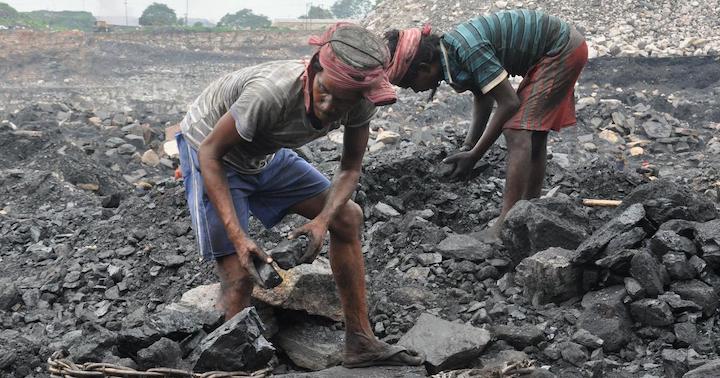Jharkhand is known to be one of most mineral-rich states in India. It is blessed with natural resources such as coal, iron ore, copper, mica, bauxite, uranium, and limestone, making it one of the most resource-abundant states in the country. Jharkhand is known provide for around 40 per cent of share of India’s total mineral wealth. It is such an irony that Jharkhand’s people remain among the poorest in the country.
Wealth Amid Poverty
Despite the immense resources that are available in Jharkhand, about 39.1 per cent of its population live below the poverty line, making it one of India’s poorest states. The per capita income in Jharkhand has been lagging significantly behind the national average. In addition, the people of Jharkhand do not have access to essential services like quality healthcare, education, clean drinking water, and sanitation.
About 19.6% of the children under five years of age in the state of Jharkhand, are malnourished. The state is primarily rural, with only 24% of the population living in cities. According to the 1991 census, the state has a population of over 20 million out of which 28% is tribal while 12% of the people belong to scheduled castes. Jharkhand has 24 districts, 260 blocks and 32,620 villages out of which only 45% have access to electricity while only 8,484 are connected by roads. As per the 2011 census conducted by Government of India the official literacy rate for the state was 67.63% (male: 78.45%; female: 56.21%).
One of the major reasons for such disconnect between Jharkhand’s natural wealth and the well-being of its people is the dynamics of its resources. A lot of the mineral wealth of Jharkhand is exported or controlled by large corporations, with minimal benefits enjoyed by the local populace. This is mainly because of the capital intensive nature of the mining industry.
The mining sector in the state is majorly dominated by private companies and state enterprises that control operations and profits. While these industries generate considerable revenue, only a small fraction is reinvested in the state’s social and economic infrastructure.
Another major problem that further intensifies the poverty in the state is the displacement of local communities, particularly the indigenous tribal groups, due to large-scale mining projects. The process of land acquisition for mining projects often cause a lot of misery to the locals because it leads to forced displacement, loss of livelihoods and erosion of cultural identity and traditions. In addition, several displaced families often do not receive adequate compensation or rehabilitation.
There is also a lot of environmental degradation caused by mining activities such as deforestation, soil erosion, and water pollution. This further disrupts the lives of the rural population, many of whom depend on agriculture and forest resources for survival.
The Need for Sustainable Development
In order to bridge the gap between Jharkhand’s natural resources and the development of its people, there is a need for a shift towards more sustainable and inclusive development. Considering the fact that so many large corporations are able to make tremendous profits because of the natural resources available in the state, it is only fair if a significant share of these profits are reinvested in form of CSR for improving the lives of local communities and infrastructure development in the state.
The Corporate Social Responsibility spending in Jharkhand stood at Rs. 388.35 Cr. in FY 2023-24, which was more than double the amount spent in the previous financial year (Rs. 193.33 Cr.). However, it still represented only about 1.2 per cent of the total CSR expenditure made in FY24. In order to uplift the poorest state in the country, it is essential that corporates shift their focus to Jharkhand for effective utilisation of their CSR funds.
Furthermore, it is also crucial that the corporates are made to adopt sustainable mining practices in order to ensure that the local communities face minimal inconvenience, and have access to the resources and livelihood. On this Jharkhand Foundation day, let us focus on the anomaly of Jharkhand – a state that is rich in natural resources, and poor population – and work towards its resolution.


